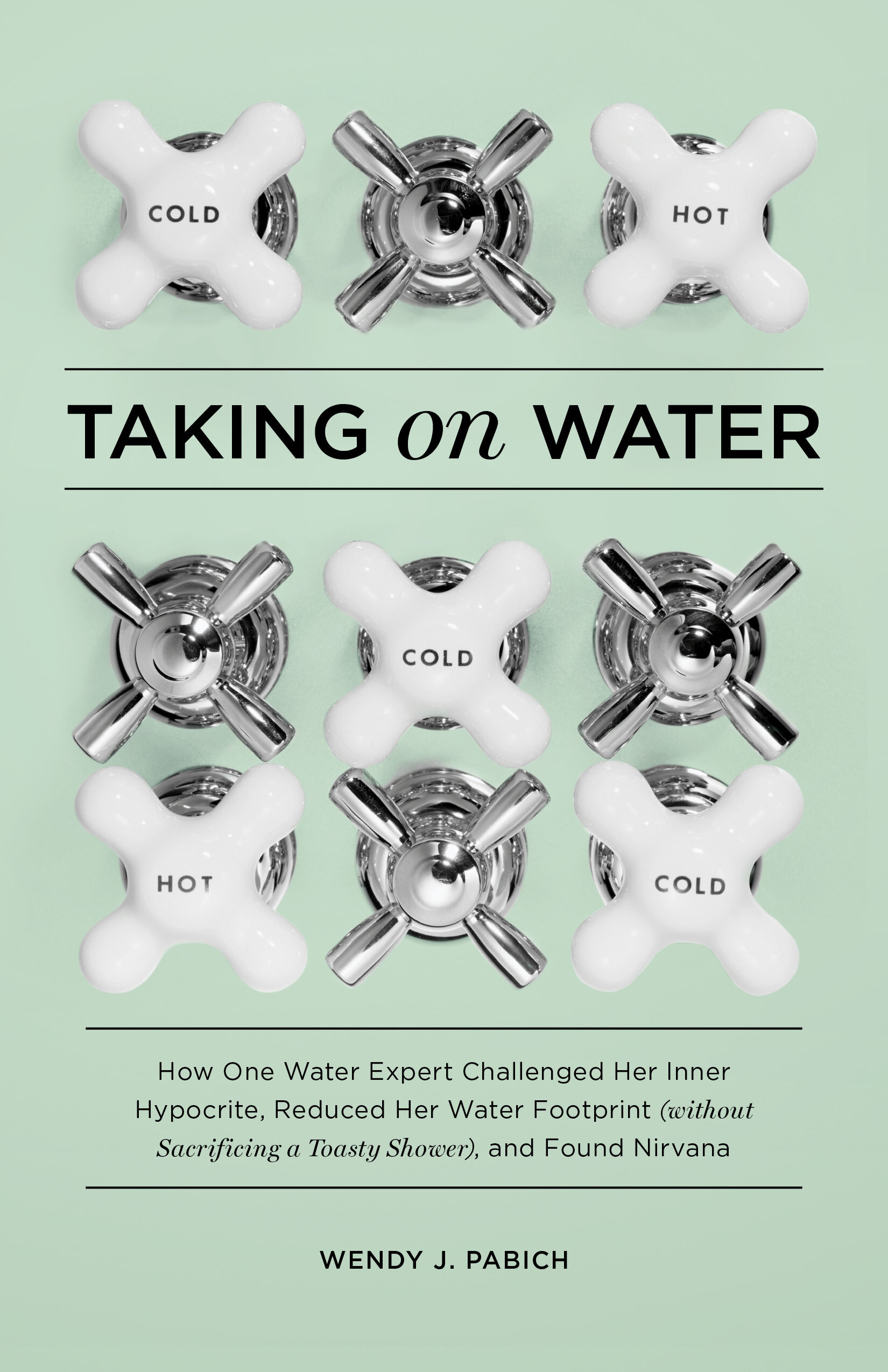“Pabich winningly works DIY information into her humorous memoir.”
Taking on Water:
How One Water Expert Challenged Her Inner Hypocrite, Reduced Her Water Footprint (without Sacrificing a Toasty Shower), and Found Nirvana (Sasquatch 2012)
When Wendy Pabich received a monthly water bill for 30,000 gallons (for a household of two people and one dog), she was chagrined. After all, she is an expert on sustainable water use. So she set out to make a change. Taking on Water is the story of the author's personal quest to extract and implement, from a dizzying soup of data and analysis, day-to-day solutions to reduce water use in her life. She sets out to examine the water footprint of the products she consumes, process her own wastewater onsite, revamp the water and energy systems in her home, and make appropriate choices in order to swim the swim. Part memoir, part investigation, part solution manual, the book is filled with ruminations on philosophy, science, facts, figures, and personal behavioral insights; metrics, both serious and humorous, to track progress; and guidelines for the general public for making small (or perhaps monumental) but important changes in their own lives. Told with humor and grace, Taking on Water offers a raw account of how deep we need to dig to change our wasteful ways.
"The results of [Pabich's] experiment are both gratifying and alarming. She and her husband did cut their water use in half, but that took them only to the level that residents of places like Japan or Poland routinely achieve. Perhaps, she and others write, people would think more about water if it were priced differently. Cheap water may reflect a widespread view that access to clean water is a natural right that everyone, rich or poor, should enjoy."
~The New York Times
"The drink meets the lips in this informed, funny, and insightful tale of two adults and a dog shrinking their water footprint. Read this book. It’s the opposite of dry."
~Alan Durning, director, Sightline Institute

